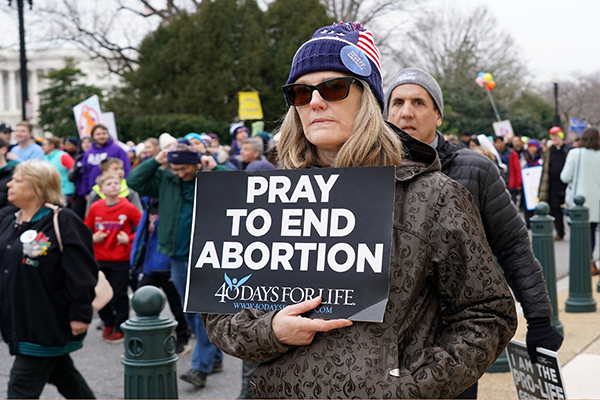
The Tablet Staff
The U.S. Supreme Court is expected to soon rule on its first abortion case to be argued at the court since Justices Neil Gorsuch and Brett Kavanaugh were appointed to the Supreme Court by President Trump.
The case (June Medical Services v. Russo, No. 18-1323) derives from a 2014 law passed by Louisiana’s Republican-led legislature required physicians who perform abortions to hold “active admitting privileges” at a hospital within 30 miles of their facility.
These physicians would have to be members of that nearby hospital’s medical staff, have the authority to admit patients there, and be able to perform relevant diagnoses and surgery.
Without the permitting privileges, the law imposes a fine of up to $4,000 per violation and imprisonment for up to two years, with the loss of a doctor’s medical license. The law essentially limits Louisiana, a state of nearly five million people, to just one doctor being able to provide abortions.
On March 4, the court heard oral arguments on the case. The passing of the Louisiana law is viewed as a step in the direction to overturn Roe v. Wade, the 1973 court decision legalizing abortion without unreasonable government restriction.
A similar law in Texas, which required abortion-performing doctors to be authorized to admit patients at a nearby hospital, had been struck down by the Supreme Court four years ago by a vote of 5-3.

Pope Francis recently said “We cannot turn a blind eye to racism and exclusion in any form
and claim to defend the sacredness of every human life.” Let us Pray and Work to End Racism.
The diocesan guidelines do not mention the liturgical ministries of Lector and extraordinary minister and altar server. What about the sacristan?
Can someone please clarify?